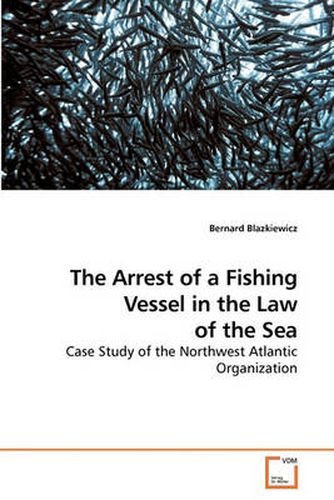Readings Newsletter
Become a Readings Member to make your shopping experience even easier.
Sign in or sign up for free!
You’re not far away from qualifying for FREE standard shipping within Australia
You’ve qualified for FREE standard shipping within Australia
The cart is loading…






This title is printed to order. This book may have been self-published. If so, we cannot guarantee the quality of the content. In the main most books will have gone through the editing process however some may not. We therefore suggest that you be aware of this before ordering this book. If in doubt check either the author or publisher’s details as we are unable to accept any returns unless they are faulty. Please contact us if you have any questions.
Regional Fisheries Management Organizations are mandated to manage and conserve the living resources of the ocean. In this undertaking, their efforts have not been entirely successful. One of the reasons for this failure revolves around the conflicting interests between coastal states, and distant water fishing states, flag states. At the heart of this conflict is the reluctance of flag states to exercise enforcement measures against fishing vessels flying their flag on the high seas, thereby undermining the conservation efforts. The recent international instruments make it quite clear that jurisdiction over fishing vessels on the high seas is no longer exclusively a matter for the flag state. They create competing jurisdictions on the high seas between flag and non-flag states. This work focuses on recent developments in the law of the sea with regard to the jurisdiction of coastal states to arrest fishing vessels that are deemed to be breaching fisheries law. The main issue considered is whether the arrest by a non-flag state of a fishing vessel engaged in illegal fishing on the high seas is permissible, and how this enforcement jurisdiction can be legitimately exercised.
$9.00 standard shipping within Australia
FREE standard shipping within Australia for orders over $100.00
Express & International shipping calculated at checkout
This title is printed to order. This book may have been self-published. If so, we cannot guarantee the quality of the content. In the main most books will have gone through the editing process however some may not. We therefore suggest that you be aware of this before ordering this book. If in doubt check either the author or publisher’s details as we are unable to accept any returns unless they are faulty. Please contact us if you have any questions.
Regional Fisheries Management Organizations are mandated to manage and conserve the living resources of the ocean. In this undertaking, their efforts have not been entirely successful. One of the reasons for this failure revolves around the conflicting interests between coastal states, and distant water fishing states, flag states. At the heart of this conflict is the reluctance of flag states to exercise enforcement measures against fishing vessels flying their flag on the high seas, thereby undermining the conservation efforts. The recent international instruments make it quite clear that jurisdiction over fishing vessels on the high seas is no longer exclusively a matter for the flag state. They create competing jurisdictions on the high seas between flag and non-flag states. This work focuses on recent developments in the law of the sea with regard to the jurisdiction of coastal states to arrest fishing vessels that are deemed to be breaching fisheries law. The main issue considered is whether the arrest by a non-flag state of a fishing vessel engaged in illegal fishing on the high seas is permissible, and how this enforcement jurisdiction can be legitimately exercised.